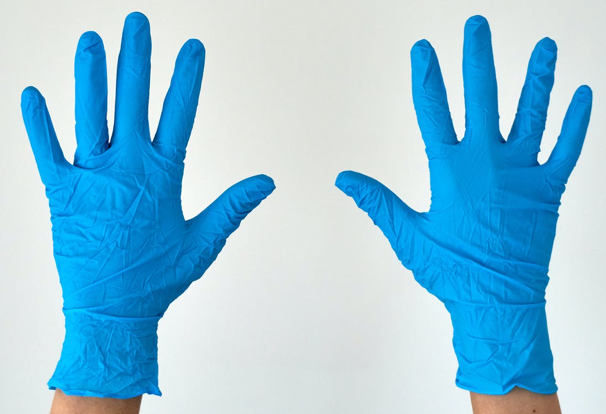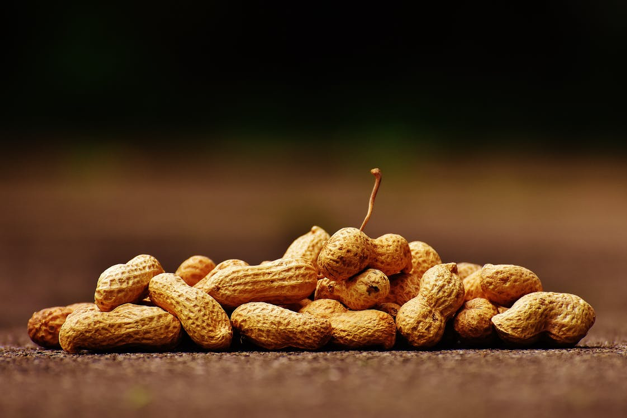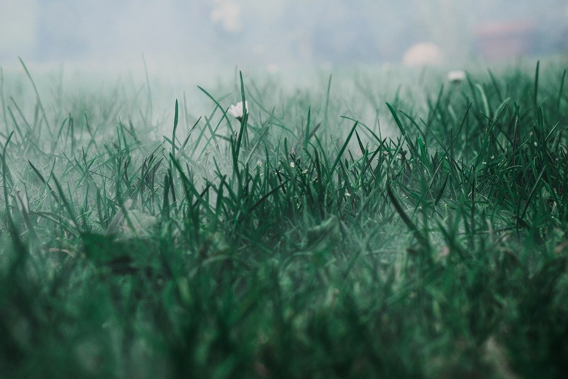Monthly Archives: November 2020
Do You Have An Allergy? Here Are The Signs
What are the signs and symptoms of an allergy? You may feel irritated with continuous itchy skin or eyes, rash, pain in the throat, or any other allergic symptoms. You can develop a rash due to various reasons, such as poison ivy, which is the oil extract of a specific plant’s leaves. Allergies can give you itchy skin, or your body can even overreact when you eat specific food items.
You can also develop a rash through illnesses such as chickenpox and measles. Hives and eczema are allergies that commonly cause skin rashes. If you are suffering from rashes because of allergies, then you need to visit an immunologist. An immunologist will diagnose your condition and treat it accordingly so that your immune system works perfectly.

(Source)
Signs and Symptoms of Allergies
Your allergic symptoms depend on allergens and the type of allergies you are prone to. For instance, dust allergies will cause different symptoms than latex allergy. Here are some types of allergies and their symptoms to help you identify what you are experiencing and why.
1. Hay Fever
Allergic rhinitis or hay fever can cause cold symptoms—for instance, itchy eyes, runny nose, sinus pressure, sneezing, and congestion. You develop a cold because of a virus. However, hay fever occurs due to an overreaction of the immune system. Allergens such as dust mites, pollen, a pets’ saliva, and pets’ dander are a few reasons why you are experiencing allergies. Below you will find some signs of hay fever:
- Tiredness
- Headache
- Loss of smell
- Earache
- Coughing and sneezing
- Blocked or runny nose
- Itchy ears, nose, mouth, and throat
- Itchy, watery, and red eyes
- Pain in your forehead and temples
- Headache
People with asthma may experience the following signs as well:
- Cough and wheezing
- Shortness of breath
- Tightness in the chest
2. Dust Allergy
Dust mites are prevalent in every house. You may develop hay fever if you are allergic to dust mites. These tiny bugs can lead to difficulty in breathing, runny nose, and sneezing. Some signs of dust allergies are:
- Cough
- Postnasal drip
- Itchy skin
- Itchy throat, mouth, or nose
- Stuffy nose
- Watery, red, or itchy eyes
- Runny nose
- Sneezing
If you have asthma, then you might experience the following symptoms:
- Wheezing, coughing, shortness of breath
- Difficulty in sleeping
- Wheezing and whistled breaths
- Pain and tightness of chest
- Difficulty in breath
3. Mold Allergy
When you are allergic through the year in various seasons, you might be allergic to mold or fungi. You will find mold everywhere. When you upset the source of the mold, it will spread spores into the air. When you inhale those spores, it triggers allergies, and you start showing signs. You may experience mold allergy commonly from July till fall. However, fungi are available throughout the year, so you may develop this allergy throughout the year. Here are some signs and symptoms of mold allergy:
- Watery eyes
- Itchy throat, eyes, and nose
- Postnasal drip and cough
- Stuffy and runny nose
- Sneezing
- Scaly and dry skin
4. Pet Allergy
There are proteins in the urine, skin, and saliva of various animals that can cause you an allergic reaction. You can also experience allergy through pet dander (skin or dead flakes). People are mostly allergic to dogs and cats because of the fur. You may experience various signs due to swelling of the nasal passage. Here are some of those signs:
- Cough
- Postnasal drip
- Itchy throat, the roof of your mouth, and nose
- Nasal congestion
- Itchy or watery red eyes
- Runny nose
- Sneezing
- Pain and pressure on the face
- Insomnia
- Blue skin and swelling under the eyes
You can experience the following symptoms if you have asthma:
- Wheezing, coughing, and shortness of breath, making it hard to sleep
- Extreme wheezing and whistling
- Pain and tightness of chest
- Difficulty in breath
5. Food Allergy
If you are allergic to some food items, even the smallest amounts of that food and your immune system will overreact. You will experience various symptoms, such as swollen airways, hives, and digestive disorders. For some people, food allergies can be deadly. Symptoms of food allergies include:
- Itchy eyes and sneezing
- Diarrhea or abdominal pain
- Vomiting or nausea (feeling of sickness)
- Lightheaded and dizziness
- Shortness of breath and wheezing
- Difficulty in swallowing
- Swollen throat, mouth, and face
- Rash, red and itchy skin
- Itchy and tingly mouth

(Source)
Allergy Signs: Conclusion
Allergies can sometimes become severe. Various allergies can be deadly. To avoid any severe reaction, you need to identify the allergens for your allergy. An immunologist will help you identify the allergens you are allergic to. They will also help you with the treatment to reduce the reaction of your allergies.
Dr. Boyan Hadjiev is one of the best immunologists in New York City. You can make an appointment with him by calling us at 212-319-5282. Dr. Hadjiev also offers telemedicine apponitments.
Sources
https://acaai.org/allergies/types/skin-allergies
https://www.mayoclinic.org/diseases-conditions/hay-fever/symptoms-causes/syc-20373039
https://www.nhs.uk/conditions/hay-fever/
https://www.mayoclinic.org/diseases-conditions/dust-mites/symptoms-causes/syc-20352173
https://www.aafa.org/dust-mite-allergy/
https://www.aafa.org/mold-allergy/
https://www.mayoclinic.org/diseases-conditions/mold-allergy/symptoms-causes/syc-20351519
https://www.mayoclinic.org/diseases-conditions/pet-allergy/symptoms-causes/syc-20352192
Common Big City Allergies
What are the common city allergies? It’s common for large cities to suffer from overpopulation and pollution. Every year the Allergy and Asthma Foundation of America publishes a list of cities every year. This list ranks cities according to the pollen count and the use of allergic medication.
Allergies occur when your immune system overreacts to allergens such as pollen and consider these substances harmful for the body. The body’s reaction to these harmless substances causes breathing problems, sneezing, and coughing, among other problems. As cities suffer from overpopulation, they contain numerous allergens, leading to negative reactions within the body. Below we will discuss some allergies that are common in big cities:

(Source)
1. Seasonal Allergies
Seasonal allergies, such as hay fever, go by many names, one of which is allergic rhinitis. According to the American Academy of Allergy, Asthma, and Immunology reports, about 8 percent of Americans experience seasonal allergy in the United States (Source).
When your body reacts with outdoor allergens, it triggers your immune system’s abnormal response and causes an allergic reaction. The most common seasonal allergens include pollen from weeds, grass, trees, and other sources. However, various plants consist of heavy pollens that do not trigger any allergic reaction.
The name hay fever comes from the season of hay cutting, which happens in the summer season. That is when many people living in big cities experience symptoms of hay fever. In winter, there are fewer chances for seasonal allergies to trigger.
Many people experience this condition throughout the year. Your condition depends on where you live and how severely your body reacts to allergens.
Symptoms
Here are some symptoms of seasonal allergies that you need to consider:
- Postnasal drainage
- Ear congestion
- Itchy ear canals, throat, and sinuses
- Itchy and water eyes
- Stuffy and runny nose
- Sneezing
Below you will find some less common signs of seasonal allergies:
- Coughing
- Wheezing
- Shortness of breath
- Headache
People who suffer from hay fever also develop asthma. Their condition gets worse when they have both conditions together, triggering an asthma attack.
2. Pollen Allergies
Allergic people in the United States are mostly allergic to mold. You will find these substances near parks and areas with weeds, grasses, flowers, and trees. When a person allergic to pollen breathe in the tiny pollens from the air, their body’s immune system overreacts and develops these symptoms.
The immune system mostly defends your body from bacteria and viruses, but sometimes it overreacts to various substances called allergens. There are various symptoms of pollen allergies. The following symptoms are familiar:
- Watery eyes
- Stuffy nose
- Sneezing
3. Food Allergies
Cities in the United States are full of restaurants and food chains. A massive population of people, on average, consumes a single meal from these restaurants every day. Most people are not aware of the ingredients used in making food.
When they consume it, they are allergic to it. Their body starts showing signs of allergy. Food allergies can cause severe symptoms, and sometimes, this can be life-threatening. Symptoms of food allergies can be mild and severe, depending on the condition of the person. Here are some of the symptoms and signs of food allergies:
- Teary eyes
- Runny nose
- Diarrhea
- Nausea
- Wheezing
- Itchy or red skin
- Skin rash
- Swelling of face and lips
- Burning sensation of mouth and lips
- Mouth tingling
You can avoid food allergic reaction by wearing a tag with a list of items you are allergic to and checking the ingredients of the food items you consume.

(Source)
4. Mold Allergy
The spores of mold float in the air. Mold is a type of Fungi and found near damp areas. They live on four things food, suitable temperature, air, and water. You can also find mold outside your house in your garden. Breathing mold is standard, and in cities, everyone breathes the spores in. However, this can trigger your immune system if you are allergic to it.
The immune system treats molds as allergens and makes your body overly react to this harmless substance. Here are some of the symptoms and signs that you may experience during the allergic reaction to mold:
- Postnasal drip
- Itchy and watery eyes
- Congestion
- Coughing
- Sneezing
Many people confuse their mold allergy to a sinus infection or cold. However, symptoms of both the conditions are similar, but the causes are different.
Conclusion: Consult Dr. Sneeze bout Your Allergy
People living in cities are at a higher risk of developing allergies. So they need to care more and maintain their lifestyle. An immunologist can help you with your allergic conditions. They will help reduce the symptoms, allowing you to focus on your life.
If you are looking for an immunologist in New York City, consult top nyc allergist Dr. Boyan Hadjiev. He will provide a complete diagnosis and treatment plan for your allergies. To make an appointment, you can call us at 212-319-5282 or visit our website for more details about allergies. You can also consult with our doctor from anywhere around the world through our telemedicine services.
Sources
https://www.webmd.com/allergies/food-triggers
https://www.aaaai.org/conditions-and-treatments/allergies/mold-allergy
https://www.healthline.com/health/allergies/mold-allergy-symptoms#symptoms
https://www.healthline.com/health/allergies/seasonal-allergies#symptoms
https://www.healthline.com/health/allergies/pollen#types
https://www.medicalnewstoday.com/articles/14384#food_allergy_symptoms
Serving all of New York City and the Tri State Area including Zip Codes: Top Allergist NYC Midtown, Chelsea and Clinton: 10001, 10011, 10018, 10019, 10020, 10036 | Gramercy Park and Murray Hill: 10010, 10016, 10017, 10022 | Greenwich Village and Soho: 10012, 10013, 10014 | Lower Manhattan: 10004, 10005, 10006, 10007, 10038, 10280 | Lower East Side: 10002, 10003, 10009 | Upper East Side: 10021, 10028, 10044, 10128 | Upper West Side: 10023, 10024, 10025
